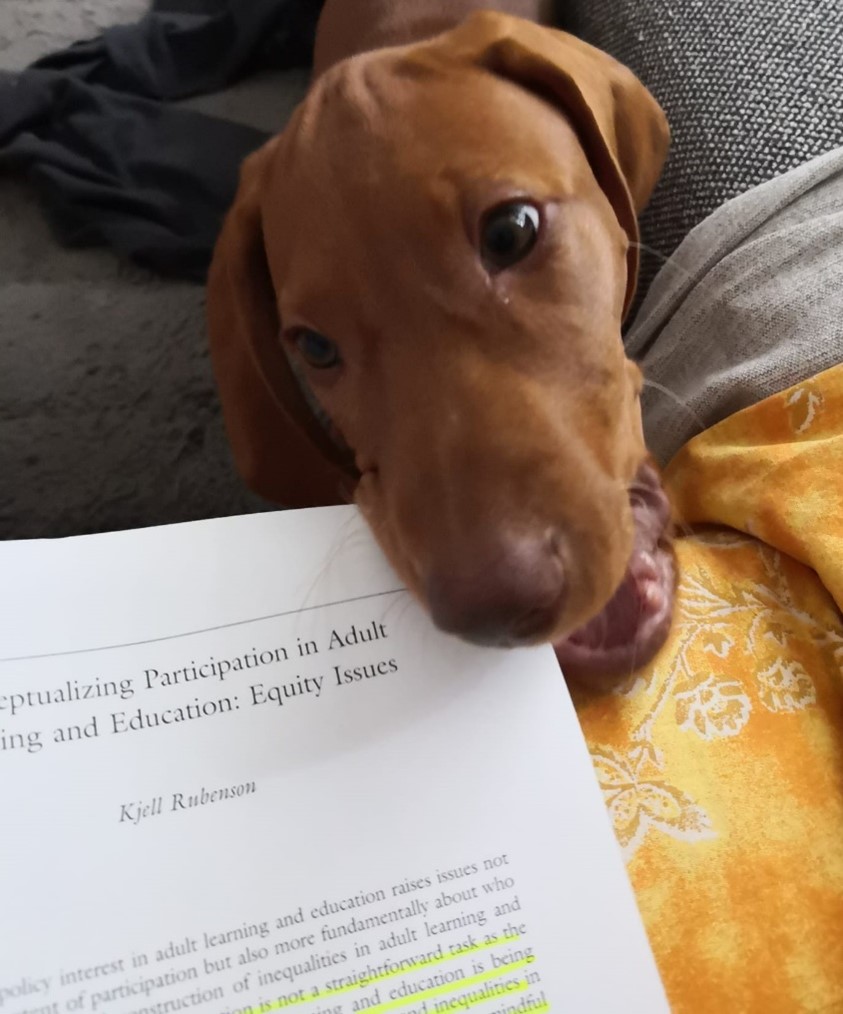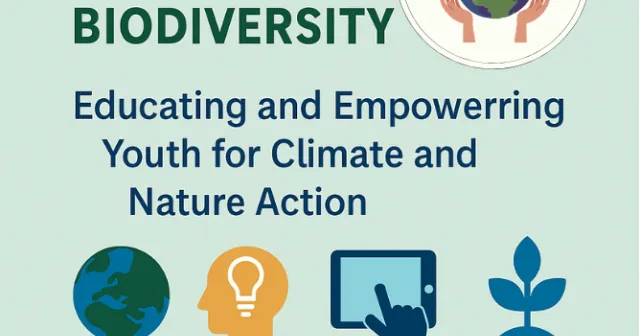How popular is popular adult education in Germany?
Reading time approx. 6 minutes - read, like, comment!

How popular is popular adult education in Germany? (© Alexandra Ioannidou)
When it comes to public opinion polls or election pledges, few proposals are as popular as increasing public investments on education. The unprecedented crisis due to the outbreak of covid-19 and the subsequent shutdown of public life led to highly asymmetric effects on economic branches, social groups and employment as well as to rising inequalities in education. In many European countries, including Germany, mitigating the effects of lockdown measures and social distancing is a high priority. The European Union and national and regional governments following a recovery plan spend enormous sums of money to support family incomes and help industry branches and businesses survive.
Implications of the Corona pandemic on adult education
The implications of the pandemic for adult education and learning have not been examined in depth yet. But almost everywhere, face-to-face educational provision and trainings were not possible. Many adult education providers and a large number of teachers and trainers experienced severe disruptions in their work and even found themselves in economic deprivation. Adult learners could not take advantage of important learning opportunities.
The adult and continuing education providers in Germany were forced from 16 March 2020 by a decision of the Federal Government and the Länder to temporarily close their facilities with far-reaching consequences for their operation. The Corona pandemic acted as a catalyst for the digital turn also in adult learning and education.
Mitigating the effects of shutdown measures for adult education providers and learners, reducing the now revealed digital gap and widening access in adult learning and education, requires a significant amount of additional public investments in education and training: from building a digital infrastructure for educational providers to the provision of the relevant digitals skills to adult educators and learners and supporting science communication through popular adult education and learning.
Public funding of adult education
Judging from the most recent figures provided by the 4th Global Report on Adult Learning (GRALE) progress on this front is limited, even though nearly everybody recognizes the value of lifelong learning and adult education. GRALE reported that 33 percent of 107 countries that provided information on public spending in ALE (Adult Learning and Education) spend less than 1 percent of their education budget on ALE, whereas nineteen percent of the countries reported spending more than 4 percent of their education budget. Among them are Finland and Germany in Europe and Lao PDR, Bhutan, Malaysia, New Zealand, and Thailand in Asia.
Given this mixed performance, why is it apparently so difficult to effectively increase spending on adult education, even though everybody considers it reasonable? One potential explanation is that policymakers are constrained by the forces of everyday politics and are therefore reluctant to expand public spending in general. A second explanation could be that adult learning and education is in fact less popular than one might assume. On a general level, policy makers and voters are very supportive of education spending, but when they are forced to make difficult choices, their support is less robust as it might seem and obviously some educational sectors enjoy higher levels of support than others.
So, what is the state of financing (popular) adult education and learning in Germany and why it would be reasonable to expand public spending in this sector?
At first glance, the situation does not look bad at all. Adult education and training in Germany is a policy field of shared responsibility between state and non-state actors. The field has a long history of institutionalisation dating back to the 18th century. As early as 1919, the Weimar Constitution of 1919 laid the foundations for understanding adult education as a common good to be promoted and publicly funded by state authorities at federal, regional and local level. Today the majority of federal states (15 out of 16 Länder) recognize in their constitution adult education as a policy area and have specific laws on adult education in place, which regulate public funding.
Public funding ensures a nationwide basic supply of popular adult education programmes. In general, when looking at the field of adult and continuing education, private funding clearly dominates - this mode of financing accounts for three quarter of the financing of the entire continuing education sector, while only a quarter comes from public funding. However, for providers of popular adult education, which are typically more aligned with stakeholders from the civil society, public funding is the most important financial source. While demand-led public financing subsidies (e.g., training grants and vouchers) play an important role in vocational education and training, the reverse is true in the case of popular adult education. There, public funding is supply-oriented - mainly in the form of subsidies for adult education supply - and performance-based. Eligible are offerings that are assumed to be in the public interest, e.g., civic, or value-oriented education offerings, courses relating to life skills or personal development, and offerings promoting family, social and intercultural living together.
Nevertheless, there is little reason to burst into enthusiasm about the situation of popular adult education in Germany. For a long time, the share of public funding has stagnated or even declined. This is possible because the adult education laws do not set any absolute requirements regarding the amount of public funding. The introduction in the early 2000’s of the New Public Management paradigm has forced adult learning providers to act in a more market-oriented manner. The share of participation fees in the financing of the Volkshochschulen - major providers of popular adult education – is now over 40 percent.
A look at the participation quote is also somewhat sobering.
Adult education and training have a good image in the German population. Overall participation rates have remained stable at a high level or even increased over the years. In 2018, 54 percent of the 18 to 64-year-old population participated in non-formal education activities. However, 82 percent of these activities were job-related (vocational or in-company training) and only 18 percent non-job-related, that is popular and liberal adult education offers.
More recognition for popular adult education
Is popular adult education more popular with politicians? Obviously, this is not the case, if we look at important political initiatives of the last few years. A particularly striking example is the National Skills Strategy that was adopted in summer 2019 by an interdepartmental alliance of federal and state governments with the participation of the social partners. An impressive number of stakeholders have joined forces here in order to establish not merely a new continuing education culture but – even more ambitiously - the continuing education republic - ”Weiterbildungsrepublik”). Unfortunately, in the continuing education republic some spots remain in the shadow: the strategy focuses exclusively on vocational and in-company training only.
Popular adult education has long been calling for public recognition and support, despite evidence on its benefits, such as the promotion of civic engagement and political participation or a healthier lifestyle. Holding strong connections to civil society, popular adult education can contribute to a democratic public sphere and influence political action towards sustainable development and an open and tolerant society.
Reasons to pay more attention to popular education are plentiful if one considers the current societal challenges: an ageing population, growing numbers of migrants and refugees arriving, the digitalization - which permeates more and more areas of life -, the looming impact of climate change and the coronavirus pandemic, increasing fake news, conspiracy theories, hate speech and political radicalisation. The cohesion of society is under pressure from many sides. Likewise, many individuals or entire groups are threatened by exclusion and marginalisation. Popular adult education cannot magically solve all these problems, but it can make valuable contributions to each one.
About the Authors
Dr. Alexandra Ioannidou is in charge of the Internationalisation Unit at the DIE – Leibniz Centre for Lifelong Learning in Germany and Secretary and Board Member of the European Society for Research on the Educations of Adults (ESREA) ioannidou@die-bonn.de
Susanne Lattke, M.A., is a research associate in the unit “Teaching, Learning, Counselling” at the DIE – Leibniz Centre for Lifelong Learning in Germany and a co-convenor of the ESREA ReNAdET-Network lattke@die-bonn.de




